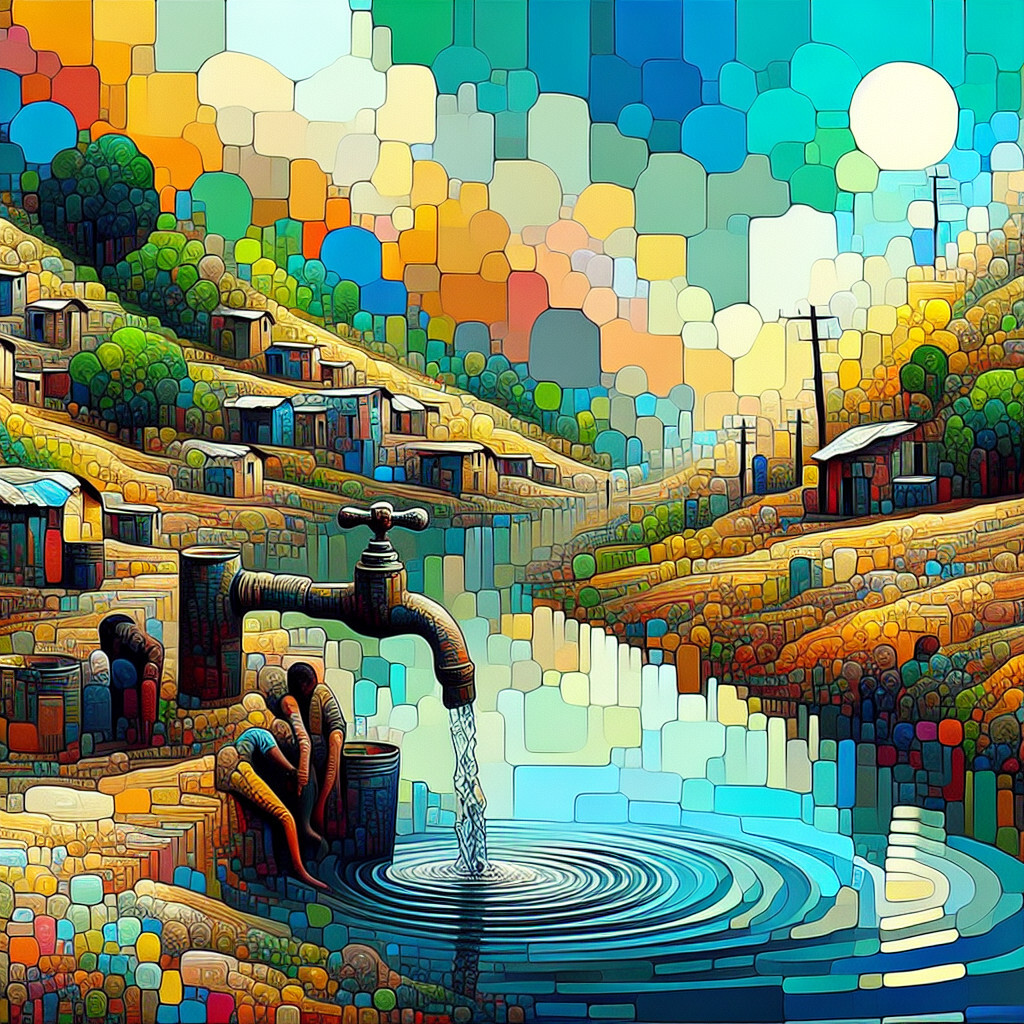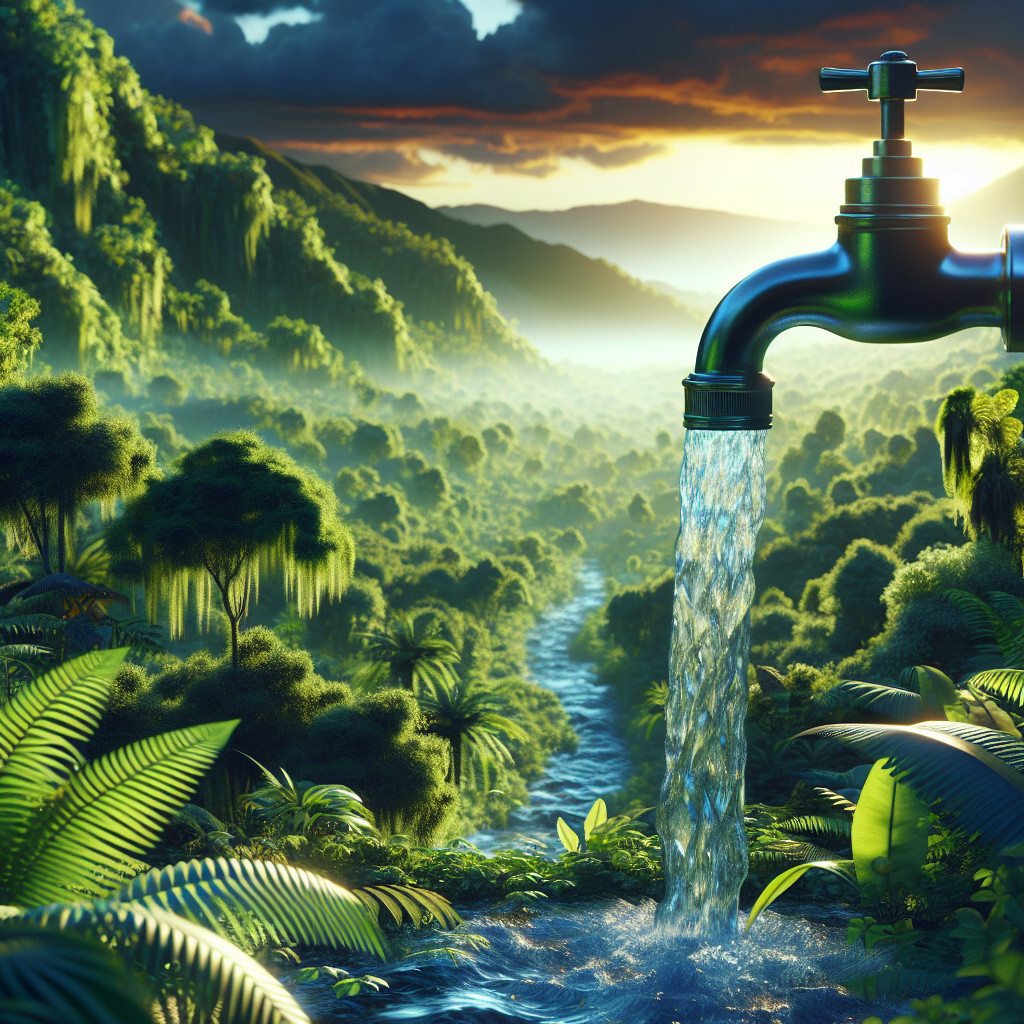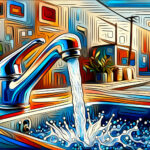-
Table of Contents
“Sierra Leone’s Tap Water: A Challenge of Purity and Accessibility.”
Introduction

The tap water in Sierra Leone is generally not safe for consumption without treatment. The country, located in West Africa, has struggled with providing clean and safe drinking water for its population due to inadequate infrastructure, pollution, and lack of resources. Many areas, particularly rural ones, rely on untreated surface water sources. As a result, waterborne diseases are prevalent. Efforts are being made by the government and international organizations to improve the water supply system, but access to clean tap water remains a significant issue in Sierra Leone.
Understanding the Quality of Tap Water in Sierra Leone
Sierra Leone, a West African nation known for its rich culture and history, has been grappling with a significant issue that affects the daily lives of its citizens – the quality of tap water. The state of tap water in Sierra Leone is a matter of grave concern, as it directly impacts the health and well-being of its people.
The country’s water supply infrastructure is largely underdeveloped, with many areas, particularly rural regions, lacking access to clean and safe drinking water. The Sierra Leone Water Company (SALWACO) is responsible for the provision of water in the urban areas, while rural water supply is managed by the Ministry of Water Resources. However, despite their efforts, the quality of tap water remains questionable.
The primary source of tap water in Sierra Leone is surface water, including rivers, streams, and lakes, which are often contaminated with harmful bacteria and parasites. This contamination is primarily due to poor sanitation practices, inadequate waste disposal systems, and the lack of proper water treatment facilities. As a result, the tap water in many parts of the country is not safe for consumption without prior treatment.
The quality of tap water in Sierra Leone is further compromised by the country’s challenging topography. The hilly terrain makes it difficult to establish an effective water distribution system, leading to irregular water supply in many areas. Moreover, during the rainy season, the risk of waterborne diseases increases due to the contamination of water sources by runoff from the land.
The government of Sierra Leone has been making efforts to improve the quality of tap water. Several initiatives have been launched to upgrade the water supply infrastructure and establish water treatment facilities. International organizations such as the World Bank and the United Nations have also been actively involved in supporting these initiatives. However, the progress has been slow, and the impact on the ground is yet to be seen.
The quality of tap water in Sierra Leone is not just a matter of infrastructure and resources. It is also closely linked to the broader issues of poverty, education, and governance. Many people in Sierra Leone cannot afford to buy bottled water or water purification devices, making them dependent on unsafe tap water. Lack of awareness about the importance of clean water and hygiene further exacerbates the problem. Moreover, corruption and mismanagement have often hindered the effective implementation of water supply projects.
In conclusion, the quality of tap water in Sierra Leone is a complex issue that requires a comprehensive and multi-faceted approach. It is not enough to simply build more water treatment plants or lay more pipes. There is a need for a holistic strategy that addresses the underlying causes of water contamination, improves the management of water resources, and ensures that every citizen has access to clean and safe drinking water. This is a daunting task, but with the right policies and concerted efforts, it is not an insurmountable one. The people of Sierra Leone deserve nothing less.
The Impact of Sierra Leone’s Tap Water on Public Health
Sierra Leone, a West African nation known for its rich culture and history, has been grappling with a significant public health issue: the quality of its tap water. The state of tap water in Sierra Leone has a profound impact on public health, with numerous implications for the wellbeing of its citizens. This article aims to shed light on the current situation and its effects on the population.
The quality of tap water in Sierra Leone is a matter of grave concern. The country’s water infrastructure is severely underdeveloped, leading to a lack of access to clean and safe drinking water for a significant portion of the population. According to the World Health Organization, only about half of the population in Sierra Leone has access to clean drinking water. This lack of access is particularly pronounced in rural areas, where the majority of the population resides.
The poor quality of tap water in Sierra Leone is primarily due to contamination. The water sources are often polluted with harmful substances such as bacteria, viruses, and parasites, which can cause a range of health problems. Additionally, the lack of proper sanitation facilities contributes to the contamination of water sources. This situation is further exacerbated by the country’s tropical climate, which provides a conducive environment for the proliferation of waterborne diseases.
The impact of Sierra Leone’s tap water on public health is significant. The consumption of contaminated water leads to a high prevalence of waterborne diseases such as cholera, typhoid, and diarrhea. These diseases are a leading cause of morbidity and mortality, particularly among children under the age of five. Furthermore, the lack of access to clean water also contributes to malnutrition, as it affects the body’s ability to absorb nutrients effectively.
The situation is further complicated by the country’s limited healthcare infrastructure. The high burden of disease due to contaminated water strains the already overstretched healthcare system. Moreover, the cost of treating waterborne diseases can be prohibitive for many families, pushing them further into poverty. This creates a vicious cycle of poor health and poverty, which hampers the country’s overall development.
The government of Sierra Leone has recognized the gravity of the situation and has been making efforts to improve the quality of tap water. Various initiatives have been launched to expand the water infrastructure and promote better sanitation practices. International organizations such as UNICEF and the World Bank have also been providing support in this regard. However, the progress has been slow, and much more needs to be done to ensure that every citizen has access to clean and safe drinking water.
In conclusion, the state of tap water in Sierra Leone has a profound impact on public health. The lack of access to clean water leads to a high prevalence of waterborne diseases, which in turn strains the healthcare system and contributes to poverty. While efforts are being made to improve the situation, the challenge is immense. It is crucial for the government and international community to continue their efforts and invest in sustainable solutions to ensure the provision of clean and safe drinking water for all in Sierra Leone.
Challenges and Solutions in Sierra Leone’s Tap Water System
Sierra Leone, a West African nation known for its rich culture and history, faces significant challenges in its tap water system. The country’s water infrastructure is underdeveloped, leading to a lack of access to clean and safe drinking water for a large portion of the population. This issue is particularly prevalent in rural areas, where the majority of the population resides. However, despite these challenges, there are ongoing efforts to improve the tap water system in Sierra Leone, with various solutions being implemented to address the problem.
The primary challenge in Sierra Leone’s tap water system is the lack of infrastructure. Many communities, particularly those in rural areas, do not have access to piped water. Instead, they rely on wells, rivers, and rainwater for their water needs. This lack of access to clean water is a significant health risk, as these sources are often contaminated with harmful bacteria and parasites. Furthermore, the lack of infrastructure also means that water is not always available, particularly during the dry season when wells and rivers can run dry.
Another significant challenge is the poor quality of the water that is available. Even in areas where piped water is available, the water is often not safe to drink. This is due to a lack of water treatment facilities and the use of outdated and inefficient treatment methods. As a result, waterborne diseases such as cholera and typhoid are common in Sierra Leone.
Despite these challenges, there are ongoing efforts to improve the tap water system in Sierra Leone. One of the main solutions being implemented is the construction of new water infrastructure. This includes the building of new water treatment facilities and the expansion of the piped water network. These efforts are being supported by international donors and non-governmental organizations, who are providing funding and technical assistance.
In addition to infrastructure development, there are also efforts to improve water quality. This includes the introduction of modern water treatment methods and the training of local staff in water management. These efforts are aimed at ensuring that the water that is delivered to households is safe to drink.
Furthermore, there are also community-based initiatives aimed at improving access to clean water. These include the construction of community wells and rainwater harvesting systems. These initiatives are particularly important in rural areas, where access to piped water is limited.
In conclusion, while the tap water system in Sierra Leone faces significant challenges, there are ongoing efforts to address these issues. The construction of new water infrastructure, the introduction of modern water treatment methods, and community-based initiatives are all part of the solution. However, it is clear that more needs to be done. Ensuring access to clean and safe drinking water for all Sierra Leoneans is not only a matter of public health, but also a matter of social justice and human rights. It is a goal that requires the continued commitment and effort of all stakeholders, from the government to international donors to local communities.
The Role of Government in Improving Tap Water in Sierra Leone
Sierra Leone, a West African nation known for its rich culture and history, has been grappling with a significant challenge: providing clean, safe tap water to its citizens. The government of Sierra Leone has a crucial role to play in addressing this issue, and it has been making concerted efforts to improve the quality of tap water in the country.
The government’s role in improving tap water in Sierra Leone is multifaceted. It involves policy formulation, infrastructure development, regulation, and public education. The government, through the Ministry of Water Resources, is responsible for formulating policies that guide the provision of water services. These policies aim to ensure that all citizens have access to clean and safe water, a basic human right enshrined in the United Nations’ Sustainable Development Goals.
In terms of infrastructure development, the government has been investing in water treatment plants and distribution networks to improve the quality of tap water. For instance, the Guma Valley and Sierra Leone Water Company are government-owned entities tasked with treating and supplying water to the capital city, Freetown, and other parts of the country. These entities are continuously upgrading their facilities to meet the growing demand for clean water.
Regulation is another critical role that the government plays in improving tap water. The Sierra Leone Water and Sanitation Regulatory Agency, established by the government, is responsible for monitoring and enforcing standards for water quality. This agency conducts regular inspections of water treatment facilities and tests water samples to ensure they meet the required safety standards. Any violations of these standards attract penalties, which serve as a deterrent to non-compliance.
Public education is also a significant part of the government’s strategy to improve tap water. The government, through various campaigns, educates the public about the importance of clean water and the dangers of consuming contaminated water. These campaigns also provide information on how to purify water at home, especially in areas where access to treated tap water is limited.
Despite these efforts, the government faces several challenges in improving tap water in Sierra Leone. These include inadequate funding, rapid urbanization, and climate change. Inadequate funding hampers the government’s ability to invest in water infrastructure, while rapid urbanization increases the demand for clean water, straining the existing facilities. Climate change, on the other hand, affects water sources, making it more difficult to provide clean water.
To overcome these challenges, the government is seeking partnerships with international donors and private investors. These partnerships aim to mobilize resources for investing in water infrastructure. The government is also implementing policies to manage urbanization and mitigate the effects of climate change on water sources.
In conclusion, the government of Sierra Leone plays a pivotal role in improving tap water in the country. Through policy formulation, infrastructure development, regulation, and public education, the government is making strides towards ensuring that all citizens have access to clean and safe water. However, challenges such as inadequate funding, rapid urbanization, and climate change necessitate innovative solutions and partnerships to achieve this goal.
Q&A
1. Question: Is the tap water in Sierra Leone safe to drink?
Answer: No, the tap water in Sierra Leone is generally not considered safe to drink due to contamination risks.
2. Question: What are the main issues with the tap water in Sierra Leone?
Answer: The main issues with the tap water in Sierra Leone include contamination with harmful bacteria, viruses, and parasites, as well as a lack of consistent access to clean water in many areas.
3. Question: How do people in Sierra Leone get clean water?
Answer: Many people in Sierra Leone rely on bottled water, water purification tablets, or boiling water to ensure it’s safe for consumption.
4. Question: Are there efforts to improve the tap water situation in Sierra Leone?
Answer: Yes, various organizations and the government are working to improve the water infrastructure and sanitation facilities in Sierra Leone to provide clean and safe drinking water.
Conclusion
The tap water in Sierra Leone is generally not safe for consumption due to contamination with harmful bacteria, viruses, and parasites. The lack of proper sanitation and water treatment facilities contributes to the poor quality of tap water. Therefore, it is advisable to drink bottled or boiled water.






